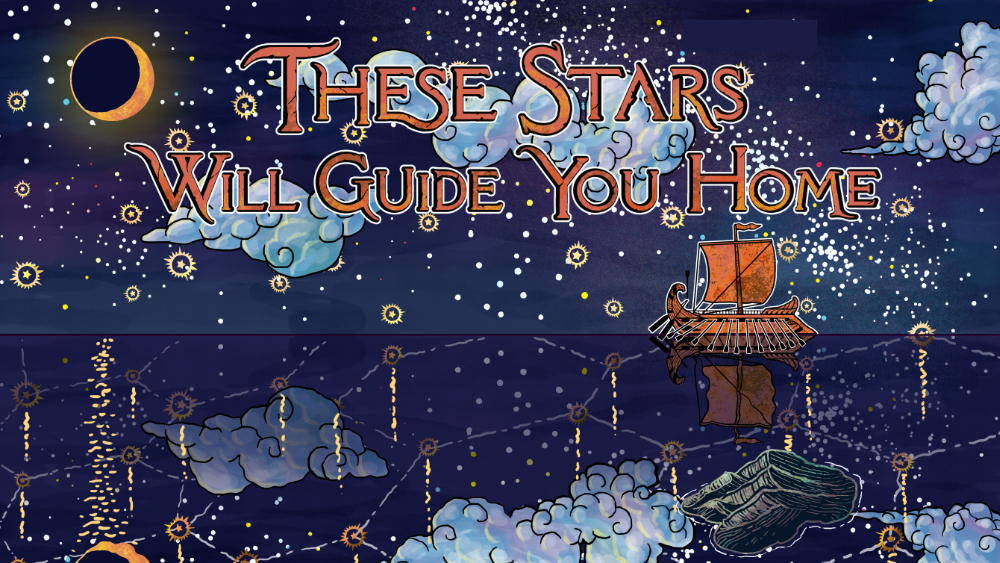
Note: this game will be crowdfunding on Kickstarter on February 7th. Sign up to be notified here.)
In the last dev diary I mentioned I am writing the game's islands in such a way that they have "relationships" with their neighbours (we are at war with the north! The lighthouse points to the south-west!) This was in order to make the world feel like more than the sum of its parts, but also different each playthrough. However, it relies on one thing happening: the position of the islands changing each time.
How do you do that?
The obvious way would be to assign a card to each island, lay them out on a table and reveal them as you explore the world. This is probably the simplest solution, but it has a big footprint, it's hard to lay the cards out like a hex map and what happens if you need to stop and resume play later?
Another version was to just draw the cards from a deck, but this felt once again more like "creation" than exploration. I wanted the world to be set at the beginning of the game. To feel like just because I havent explored a particular hex, doesn't mean there isn't something there. There should be no cards left in the deck, so to speak.
At the same time, I was doing some reading about celestial navigation and discovered it's not just Polaris that can be used to find north; there are plenty of other "navigational stars" that can be used to fix your position - 57 of them!
Following on from that, I assigned each island a combination of stars (the island of Etheria, for example, might always be where Pollux and Arcturus cross). Then, at the beginning of each game, you put star names on a hex map randomly, so that the position on the map defined by Pollux and Arcturus changes.
I realise this is veeeeeeeery close to the "creation" mentioned above, but the difference is it defines the entire world at the very beginning of your game, instead of creating it as you go along. In that sense, it's similar to procedural generation found in games like Minecraft or Terraria. Most importantly, the act of creation is done once, and then doesnt interrupt the flow of the game, which can then focus on two phases - the journey and the epic.
Another two-phase game like The Royal Cartographer? Oh yes. More on that in the next entry. As ever, please send me any feedback you may have!
Did you like this post? Tell us
Leave a comment
Log in with your itch.io account to leave a comment.